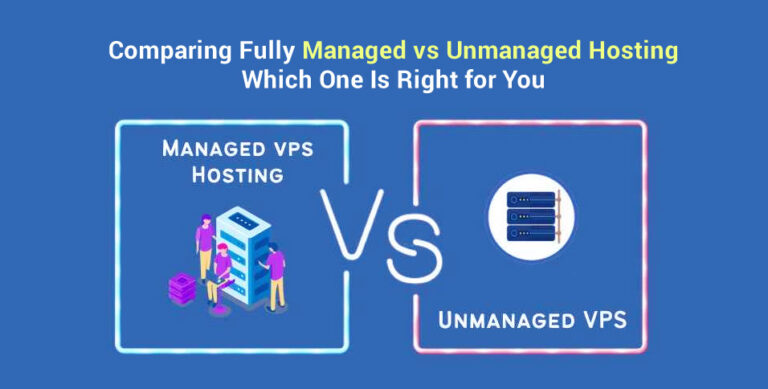As businesses continue to explore new revenue streams, subscription-based models have become an increasingly popular choice. By offering customers a recurring service or product, companies can establish a reliable revenue stream and build long-term relationships with their customers. However, managing a subscription-based business can be a complex undertaking, requiring careful attention to billing, payment processing, and customer retention.
Use subscription billing software – a comprehensive solution streamlining the subscription management process. With features such as automated billing, payment tracking, and customer engagement tools, subscription billing software offers a range of benefits that can help businesses of all sizes maximize their subscription revenue. For example, learning how to track subscriptions effectively can enhance the efficiency of this process.
Read on to find eight benefits of subscription billing software, highlighting the latest research and industry best practices.
1. Automated Billing
Subscription-based businesses often face the challenge of managing the recurring billing and payment process, which can be time-consuming, error-prone, and tedious. Subscription billing software allows businesses to automate the recurring billing process for their products or services. It means that once customers have signed up for a subscription, the billing and payment process will be handled automatically, freeing up valuable time and resources for the business. Automated billing with subscription billing software also ensures that invoices are sent out on time and that payments are processed promptly, reducing the risk of late or missed payments, which can negatively impact cash flow and profitability. With efficient platforms, like subscription billing software from BluLogix, businesses can enjoy improved cash flow and greater predictability in their financial planning.
Moreover, automated billing enables enterprises to focus on more important aspects of their operations, such as developing their products and services or expanding their customer base. Therefore, subscription billing software’s automated billing feature is valuable for businesses that want to streamline operations and improve efficiency.
2. Enhanced Customer Engagement
A subscription billing software offers businesses a unique opportunity to engage customers and build long-lasting relationships through a more personalized and transparent billing experience. By providing customers with self-service options and flexible billing plans, businesses can offer the convenience and control that today’s consumers expect. It leads to increased satisfaction, loyalty, and reduced churn.
Additionally, subscription billing software provides businesses with valuable insights into customer behavior and preferences, allowing them to optimize pricing, product offerings, and marketing strategies. With more accurate data, companies can tailor their messaging to each customer’s needs, increasing engagement and enhancing the overall customer experience.
3. Improved Data Analysis
Reporting and analytics play a pivotal role in comprehending your customer base. By leveraging data analytics, you can improve your services and bolster customer retention. It’s vital to incorporate subscription billing software to monitor critical metrics such as subscriber count, cancellations, and individual subscriber revenue and track your business operations comprehensively.
The abundance of data that you gather can aid you in making well-informed business decisions. For instance, with subscription billing software, you can identify the types of customers who are more likely to cancel their subscriptions. Subsequently, you can channel your efforts towards retaining them and prolonging their association with your business.
4. Tailored Subscriptions
Subscription billing platforms offer unparalleled flexibility as they can be easily integrated with various subscription-based payment models. Additionally, these platforms can be effortlessly adapted to scale as per the unique requirements of businesses. While billing operations may face disruptions occasionally, subscription billing platforms are designed to provide businesses with the tools necessary to overcome any challenges they may encounter. It is achieved by leveraging a zero-coding-based application that enhances the platform’s capabilities, eliminating the need for intermediaries. Furthermore, businesses can exercise greater control over billing cycles and provide customers with a more flexible billing solution, enhancing their overall experience.
5. Integration with Other Systems
One of the key advantages of a subscription billing platform is its ability to integrate seamlessly with existing systems, such as accounting, CPQ, CRM, and marketing automation tools, making the migration process a breeze.
The integration process is typically simple; businesses only need to make a few adjustments to import data from their previous systems. Many subscription billing platforms also offer Application Programming Interfaces (APIs), allowing developers to create applications that leverage the data and capabilities of the billing platform. This API functionality can empower businesses to build custom solutions and automate processes, enhancing efficiency and reducing manual errors.
6. Accessibility of Information Within the Organization
One of the significant advantages of subscription billing software is its ability to access business data from any device, anywhere, and to anyone with authorized access. This convenience makes it effortless to share information with customers, partners, and employees, enabling them to leverage the data to enhance their daily operations and improve business processes. Furthermore, subscription billing software fosters interdepartmental collaboration by facilitating the sharing of subscription information, such as sales figures and customer satisfaction results. Finally, with this software, businesses can collaborate with partners in other countries, accelerating their global expansion.
7. Manages Subscription Cancellation
Subscription billing software offers the crucial benefit of efficiently managing customer cancellations. With the subscription billing system, businesses can send alerts to customers before the due subscription expiry date, reducing the frequency of subscription cancellations. It allows companies to proactively reach customers and persuade them to renew their subscriptions. In addition, by using this automated system, businesses can save time and resources that would have been used to handle subscription cancel flows manually.
8. Compliant with PCI regulations
Subscription billing software offers the important advantage of compliance with the Payment Card Industry (PCI). By utilizing a subscription-based payment model, businesses can adhere to the stringent security standards outlined by the PCI. It is accomplished by securely storing customer credit card information within the subscription billing platform rather than on the company’s servers. Not only does this increase data security, but it also allows for better control over the handling of subscription payments. As a result, businesses can minimize the risk of data breaches and provide customers with a safer and more secure payment experience.
Conclusion
Subscription billing software can significantly reduce administrative burdens and resource requirements while improving revenue and customer satisfaction by automating recurring payments, managing customer information, and providing customizable billing options. In addition, the ability to tailor plans and pricing to meet customers’ unique needs helps to ensure their continued patronage, thereby increasing customer retention rates. As a result, businesses can optimize billing processes and improve their bottom line, making it a valuable investment for any organization.
Also Read: School Management System Software: Trends and Statistics You Need To Know In 2023

















